"Pretty Emma here chooses not to identify," Cruz, a character on Vida, says about her on-again, off-again hookup Emma, one of the show's lead characters. Emma, who's had a breakthrough orgasm that morning, having allowed Cruz "in," as it were, has reluctantly agreed to attend a gay wedding as a plus one. But the evening is derailed when the queer women at Emma's table grill her for being a "baby queer" and a "tourist" for refusing to make others comfortable by fitting into a neat little box.
"I'm sorry I don't abide by your dated categories of queerness. I'm sorry that you think I'm confused or indecisive because I have a wide range of what I can get off to," Emma fires back before storming out.
For Tanya Saracho, the queer creator of Starz's breakout intersectional, Latinx series about disparate sisters searching for a way to run their mother Vidalia's (Vida's) failing bar and apartment building in the wake of her death, the scene at the wedding is personal. And counter to early shows like The L Word and Queer as Folk in which the characters embraced a kind of sameness in their LGBTQ circles, Vida continually pushes at the margins of queer identity.
"I'm queer, but my last partner was a cis male, and I had to defend myself at bars and I've been called a tourist," Saracho tells The Advocate.
The series kicked off its second season in early June (all episodes are currently available to stream on the Starz app), but Saracho has known since Vida's genesis that she wanted to include a discussion about who gets to define LGBTQ identity.
"We need to have Emma be called a tourist and we just talk about this problem in our community that we police each other. Finally, it fit," Saracho says about coming up with the scene. "We had this wedding, a queer wedding, so it's like, 'How queer are you? How legit are you?'"
As Emma's backstory goes, her mother exiled her from her home in the Boyle Heights area of Los Angeles when she was young for being queer. She returns home upon her mother's death only to discover that Vida had married a woman.

Tanya Saracho
Emma (Mishel Prada) comes home to the place where she was cast out of in hopes of cleaning up her mother's financial messes and getting back to her corporate job in Chicago posthaste. But she's soon sidelined by the antics of her irresponsible hippie-leaning sister, Lyn (Melissa Barrera), and the job of untangling her mother's estate from that of the late woman's wife, Eddy (Ser Anzoategui).
While handling her family's affairs, Emma distracts herself by hitting a hookup app where she flexes sexual agency as a femme top drawn to people of various genders. Eventually, she succumbs somewhat to repeat interactions with her former flame Cruz (Maria-Elena Laas), all of which gets tossed out when Cruz takes Emma's attendance at the gay wedding as an opportunity for PDA, oversharing about the sex they'd had that morning, and judging her refusal to label herself.
"It [the scene] creates a conversation -- a place where people can look at another person that maybe you wouldn't normally talk to whether it's because you're queer or because [Emma] chooses not to identify as any specific group -- because she doesn't like belonging to groups..." Prada tells The Advocate about her character, who, she adds, "is not going to identify as anything that kind of creates the group for her (including her identity as a Latina woman)."
"The more you see someone that's just kind of cold and comes across cold and icy, you get to identify the humanity in that person and it makes it a lot easier to emphasize," Prada says of Emma, who begins to thaw with Cruz and to enjoy a sliver of feeling like belonging among LGBTQ people before she's closed off again.
"Once you start feeling a certain way, Vida just flips it right away," Prada says. "[Emma] starts seeing what it's like to kind of have this group of belonging. Then, within a scene or two, she's like, Wow. These people do not accept me for who I am. It's a reminder of why she doesn't let people in."
While Cruz dogpiles on the woman she's sleeping with, Nico, a charming queer woman and the wedding's "best man," played by Roberta Colindrez of Fun Home and I Love Dick fame, jumps to Emma's defense.
"I haven't had to deal with the concept of tourist since Shane was flipping bitches on The L Word," Nico says with the confidence of a character that could have sprung only from a writers' room loaded with queer people.
"So, she should get an asymmetrical haircut or something?" Nico says. "How else are queers supposed to announce themselves if not through the confines of the binary?"
Prada credits Saracho and her vision in creating a primarily Latinx, queer, female writers' room with being able to get to the crux of arguments within LGBTQ communities about identity.

Melissa Barrera and Mishel Prada
"A scene like that, I think, only gets to happen when you have more than one queer person in the writers' room. Half the writers' room is queer, and that's very much a conversation that happens amongst each other," Prada says. "It's really cool, right, to get to see that, and you only get to do that when you have different points of view because there's not one way to be a queer Latina."
Saracho has experienced identity policing as a queer woman who was recently partnered was a cisgender man, but she also says the notion of tackling the issue created a pointed dialogue within the writers' room.
"That scene was really important to me, especially because it caused such a polemic in the room," Saracho says. "I'm like, 'This is why we have to do it!'"
Even before the wedding episode dropped this season, Anzoategui, who is nonbinary and plays Eddy but who's not in those scenes, felt a personal connection to the story.
"So much of what's happened in our community has been -- I'm sure in different generations -- this policing, whether it's about sexuality or gender. It's so right on," Anzoategui tells The Advocate, adding that they were thrilled that Saracho confronted the subject.

Prada and Anzoategui
"I want to get away from speaking so much about focusing on body parts," Anzoategui says of a situation they experienced in which someone they respected in the LGBTQ community who was older and who had themselves transitioned challenged their gender identity.
The wedding scene is not the only opportunity Saracho takes to explore fissures among queer people. At one point, Eddy balks at the idea of Emma renting one of the vacant apartments in her mother's building to a queer person Eddy perceives as a gay man and therefore a threat.
"I wanted people's real perspectives to happen, and it's not all Kumbaya because we're all queer. It can't be," Saracho says.
But Vida does more than excavate conversations about what it means to identify under the LGBTQ umbrella. The series weaves conversations about Latinx identity in as well. Emma is continually questioned about her Latinx identity while issues of class and "colorism" as Latinx people arise between Eddy and Nico.
"It happens in Latino culture too. 'How much Spanish do you speak? Were you born in Mexico?'" Saracho says. "We police each other as otherized people. Dominant culture is already policing us, so why would we do that to ourselves?"
RELATED | Tanya Saracho Talks About Vida's Steamy Queer Sex Scenes
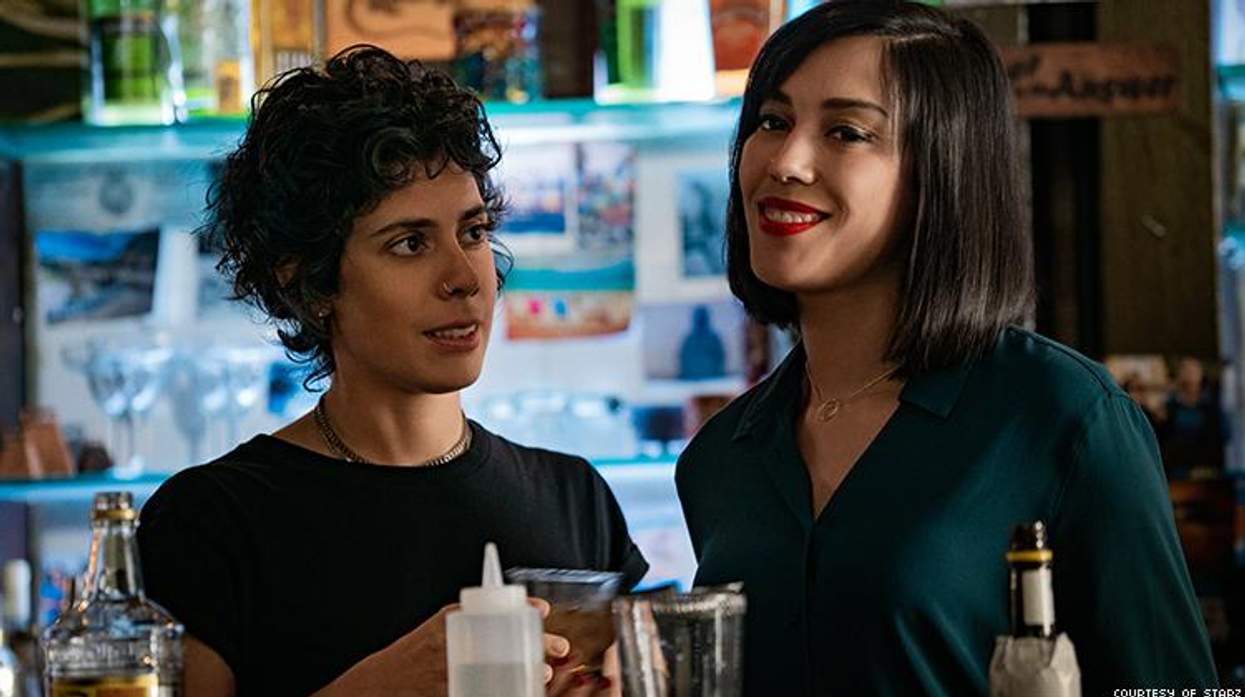

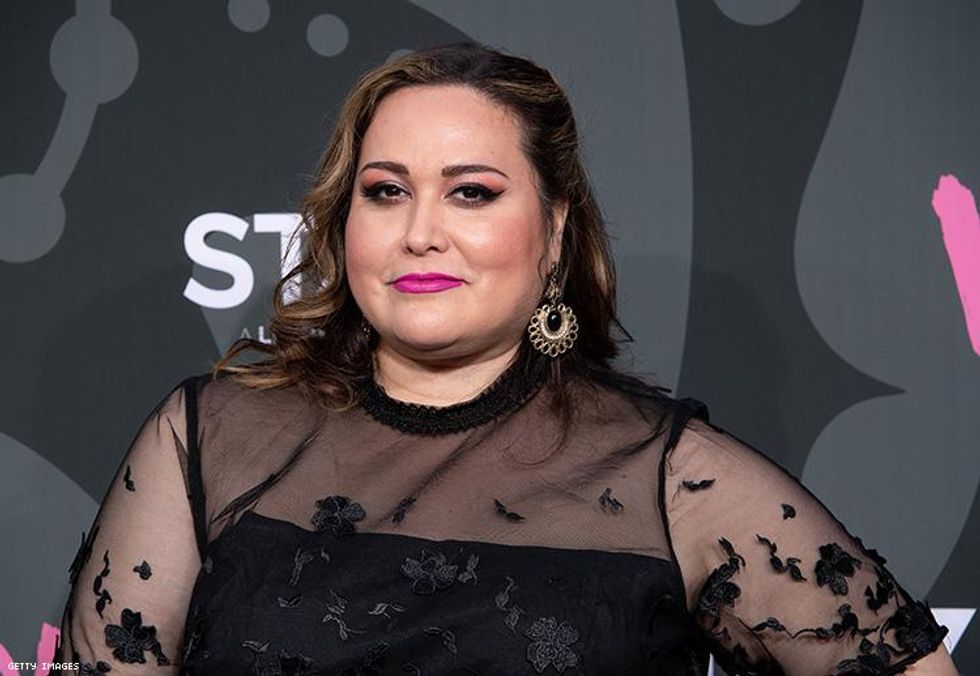
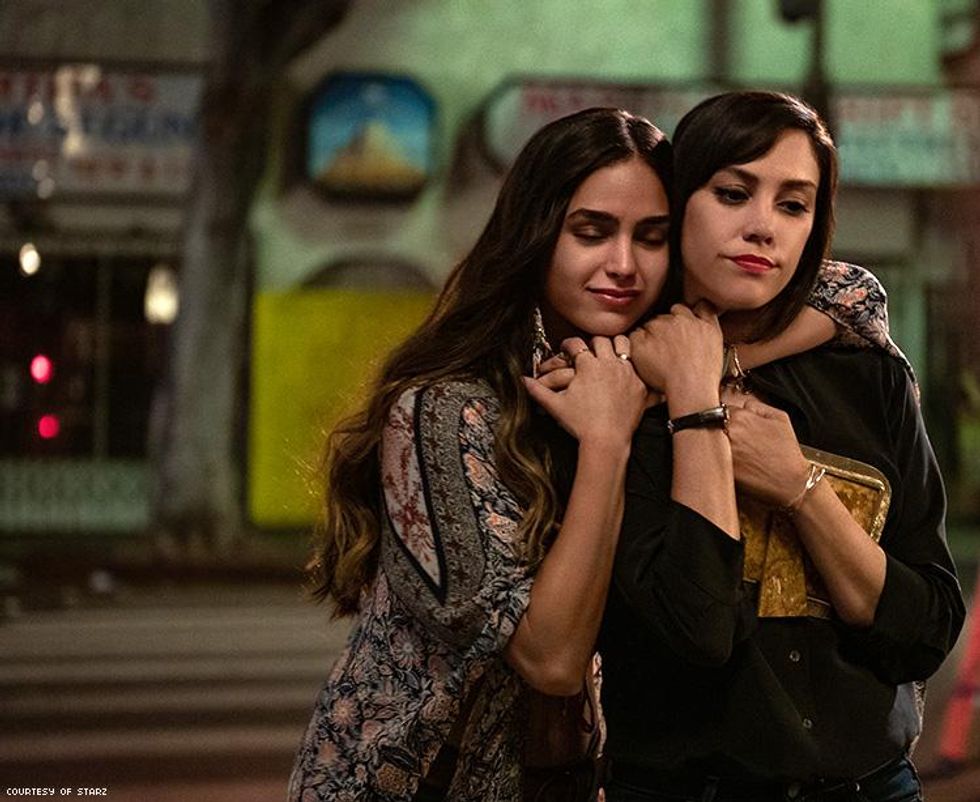
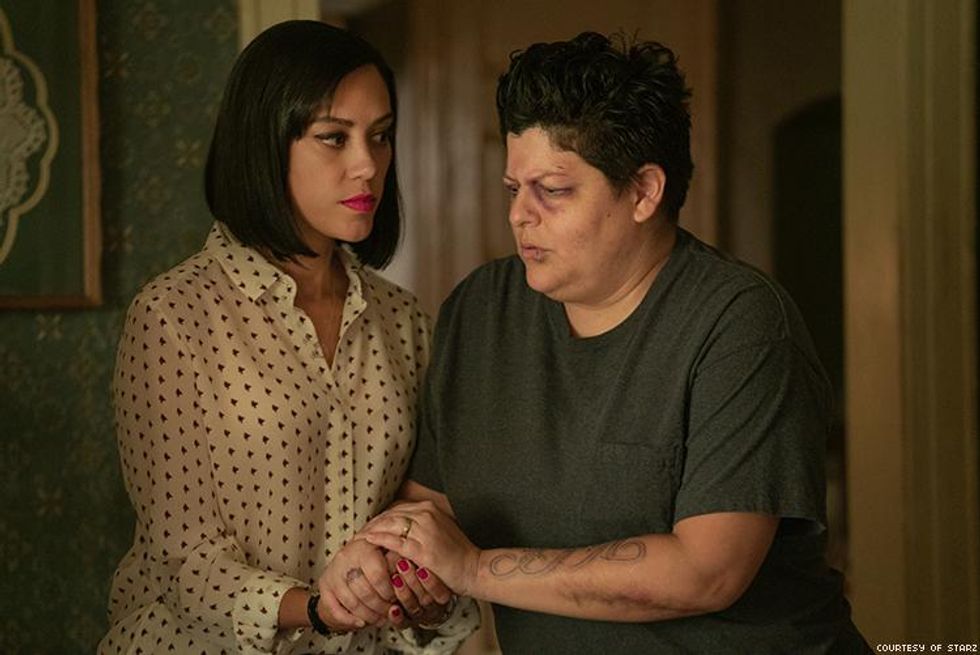









































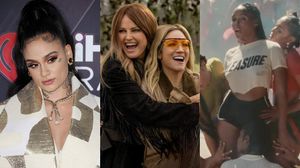








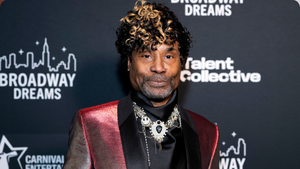
















Charlie Kirk DID say stoning gay people was the 'perfect law' — and these other heinous quotes